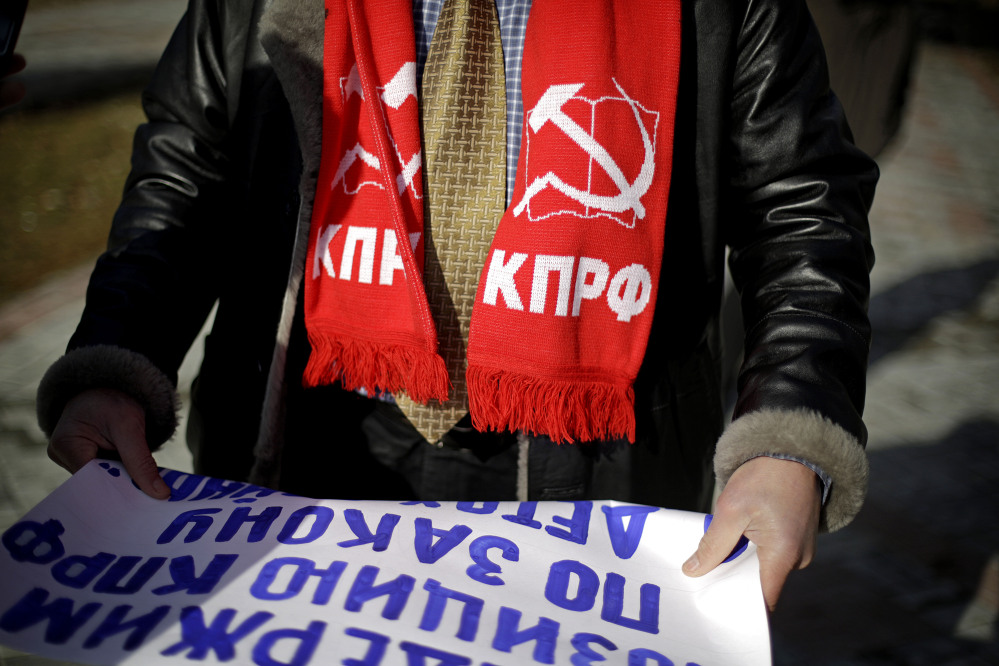SOCHI, Russia — In the shadows of an elevated highway, inside an out-of-the-way park, a hardy band of local Communist Party members staged the first formal protest of the Sochi Olympics.
Miss it? That’s not surprising. About 7 miles from the nearest Olympic venue, a handful of curious onlookers, a few mothers pushing young children in carriages, two TV cameras and a sprinkling of uniformed and plain-clothed police were there to witness Igor Vasiliev, leader of Sochi Communist Party Branch, and six supporters stage a peaceful rally on Saturday.
Russian authorities are allowing public demonstrations during the Olympics, but there’s unlikely to be massed angry mobs of people protesting against the kind of issues in Russia that have gained international attention ahead of the games.
Under the guidelines, all demonstrations and rallies must be staged in the designated zone — at the “50 Years of Victory in the Great Patriotic War Park” in the coastal neighborhood of Khosta — and must be preapproved.
Vasiliev said he applied for his permit on Jan. 27 and was given approval to stage a rally on Saturday, six days before the opening ceremony.
The group, wearing red scarves and holding placards, wanted to raise awareness of the plight of the so-called Children of the War — Russians born between 1928-45 — and their campaign for public financial aid.
Not even Vasiliev thinks the designated protest zone will get much use — it is bounded by a river on one side, a railway on another, is nestled under the new main Sochi highway, and is accessed by a pedestrian pathway near the end of a dead-end street.
To say it’s tucked away would be an understatement. Some of the local residents have confused the location, with some asking the manager of a nearby children’s amusement park if that is the designated demonstration zone.
“I think this is the wrong place … it was chosen on purpose,” Vasiliev said. “I want to underline that the authorities have chosen this place specifically because it’s not a busy place — there are very few people. You can only guess what they were aiming at when they chose this place.”
Vasiliev plans to stage rallies at locations closer to the municipal government’s central office after the Olympics, to a “place where we can be heard and seen both by the local people and by the authorities — not here when we are seen only by the passing by trains.”
Kindergarten assistant Yelena Chulkovr was among those walking, by chance, through the designated zone at the time of Saturday’s rally. She said she’d welcome demonstrations by protest groups if they were “acceptably done.”
“Why not?” she said. “Everyone has the right to express your opinion.”
Asked why he persisted in staging a rally when he knew it would be so far out of the public eye, Vasiliev found a reason to go ahead.
“The venue is not much suitable,” he told a television interviewer, “but at least you’re listening to us.”
Send questions/comments to the editors.



Success. Please wait for the page to reload. If the page does not reload within 5 seconds, please refresh the page.
Enter your email and password to access comments.
Hi, to comment on stories you must . This profile is in addition to your subscription and website login.
Already have a commenting profile? .
Invalid username/password.
Please check your email to confirm and complete your registration.
Only subscribers are eligible to post comments. Please subscribe or login first for digital access. Here’s why.
Use the form below to reset your password. When you've submitted your account email, we will send an email with a reset code.